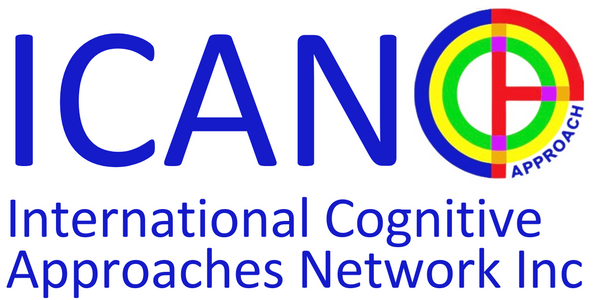Lisa and Tom Arrive at the CO-OP Approach
Share
Lisa T. Shooman, Ph.D., OTR/L, CLVT is a visiting Assistant Professor and Researcher in the Occupational Therapy Department at Worcester State University, Massachusetts, USA.
An OT finds CO-OP
After graduating from Columbia University with a master’s degree in occupational therapy in 1997, I began my career as an occupational therapist in inpatient rehabilitation with adults. I gained valuable experience in acute care, outpatient rehabilitation, hand therapy, home care, and workers' compensation. I then moved to pediatrics, working in private and public schools with preschool and elementary school children for ten years. In 2006, I also began a private practice serving both adults and children. Always intent on providing my clients with the most current, most effective, evidence-based therapy, I attended numerous continuing education courses. Unfortunately, many of the courses turned out to teach approaches that were not evidence-based, so I kept searching. Then I read about a new, evidence-based intervention called CO-OP, so I sought to learn more.
In the spring of 2014, I contacted the University of Toronto (U of T) to attend the CO-OP training, and I booked my flight on Air Canada. Later that day, I received a lovely wedding invitation for my cousin who, as it happens, lives in Toronto. The wedding was scheduled to take place on the night of the last day of the CO-OP training, which meant if I wanted to attend my cousin's wedding, I would need to stay in Toronto for an extra day. I immediately called Air Canada, and since it was within 24 hours of my booking, I changed the dates of my flight with no penalty. I felt it was a sign that I needed to connect with my Canadian family and incorporate CO-OP into my OT practice.
At the U of T, my CO-OP instructors were Helene Polatajko, Deidre Dawson and Sara McEwen. I was the only foreigner at the CO-OP course, and I became one of the first certified CO-OP therapists in the USA. Dr. Polatajko and Dr. Dawson began referring clients to me and word got back to them about my successful work with CO-OP. Dr. Polatajko encouraged me to pursue doctoral studies and in 2015, I began my Ph.D. journey. In 2019 with a Ph.D. in hand, I began my first academic appointment as an occupational therapy assistant professor at Worcester State University.
Tom’s Experience with CO-OP
Tom,* one of the many clients that I have worked with using the CO-OP Approach, was also looking for an evidence-based approach to help with his performance issues, most especially swimming! Finally diagnosed with DCD at the age of 60**, Tom had struggled for years with motor coordination challenges. He had spent his entire childhood avoiding sports and did not exercise as an adult because he struggled with movement. When he started experiencing health issues, his primary medical doctor encouraged him to begin exercising to improve his health and reduce his high blood pressure, so Tom sought help for his movement problems. He went to many therapists. They gave him specific motor strengthening exercises but that did not help him with his goals; he was eager to take up swimming but found it very challenging. At age 60, he hired a swimming teacher who had been teaching swimming full-time for about three years. Tom noted about his swimming teacher, "Teaching swimming to hundreds of adults and kids, he thought he could help me. After some time, my local instructor concluded, I am different and, to him, unique. He saw my desire to improve but had nothing in his toolbox."
Not happy with his lack of progress, Tom sought out other options. With his new diagnosis in hand, he searched the internet for treatments for DCD and soon came upon the CO-OP Approach. As an engineer, the approach made sense to him and he felt it could help him, so he contacted Dr. Polatajko. In search of a CO-OP therapist in the USA, Dr. Polatajko referred Tom to me, so Tom and I met. We analyzed videos of his swimming together. With my guidance, Tom learned how to carry out dynamic performance analyses of his own performance and how to develop domain-specific strategies that would improve his performance. Strategies Tom used included: feel the movement, verbal motor mnemonics, and verbal rote scripts. For example, he would say to himself, "pull, push, reach." With the CO-OP Approach, Tom improved his swimming which significantly improved his blood work and decreased his blood pressure. His medical doctor was very pleased with his positive medical tests. In an email to Dr. Polatajko, Tom described his experience with CO-OP in this way, in part:
Traveling to Toronto to meet Dr. Polatajko and her team at the U of T proved to be a life-changing event. Not only did I attend a beautiful wedding with my family in Toronto, but I found a mentor who believed in me to expand my education. As a life-long learner and seeker of the best approaches to help my clients achieve their goals, CO-OP enables me to improve my OT practice to empower my clients and provide evidence-based curricula to my undergraduate and graduate OT students. My students often tell me how much they appreciate hearing examples from my clinical experience, which enriches their learning. It is no surprise that one of the courses I teach at the graduate level is the clinical reasoning course that incorporates various cognitive approaches, which of course, includes CO-OP!
*His name has been changed.
**Tom was diagnosed with DCD very late in life; when he was a child the DCD diagnosis did not exist.
